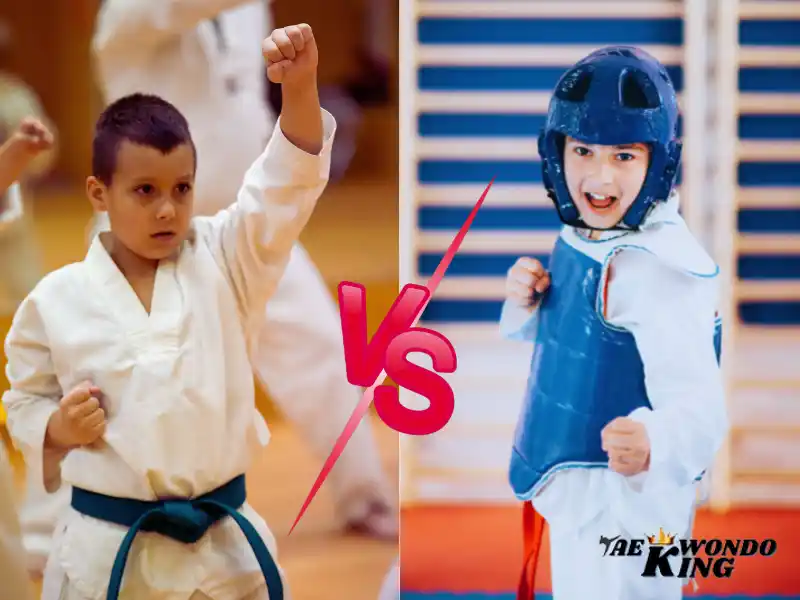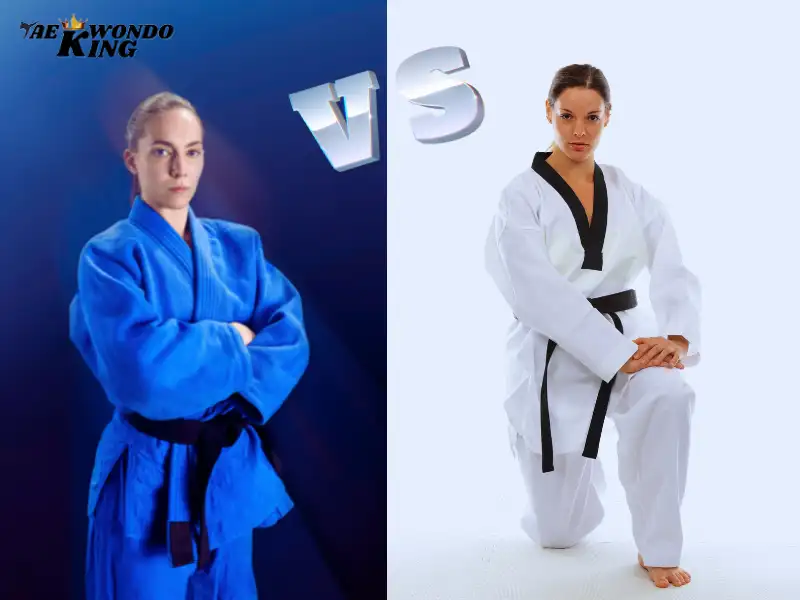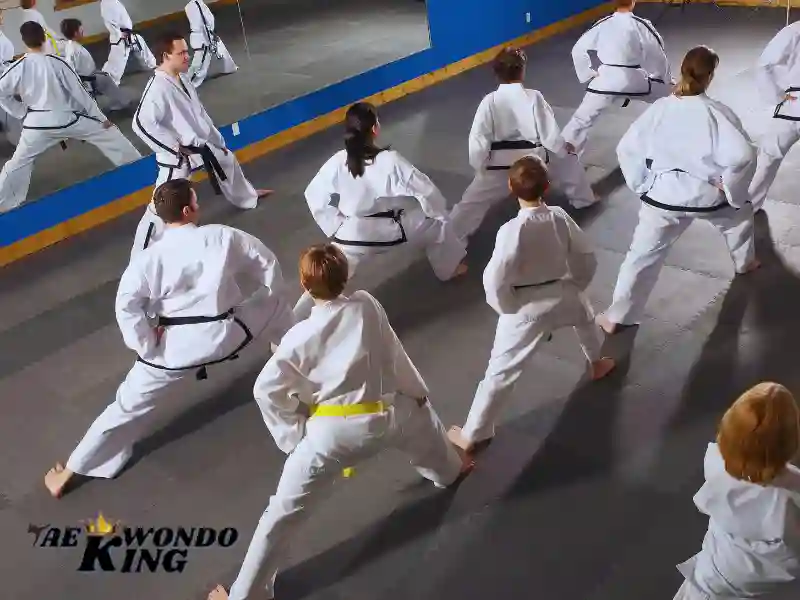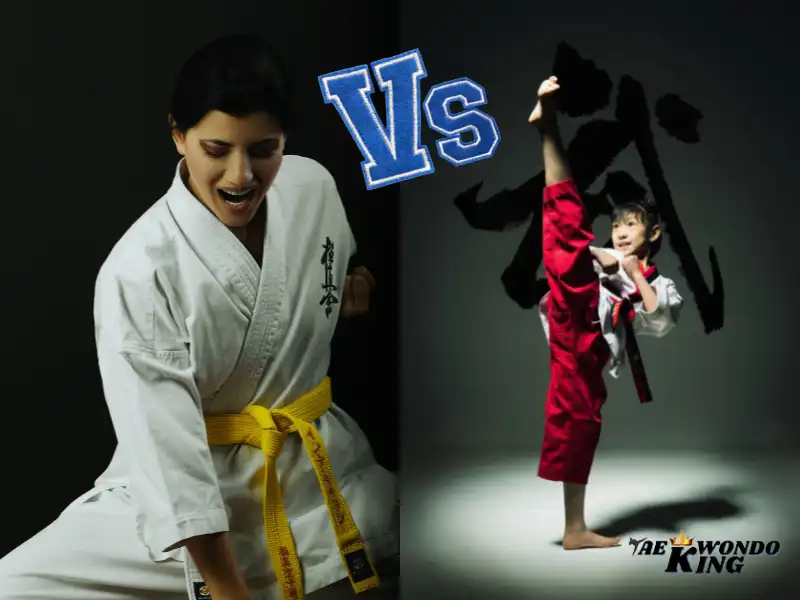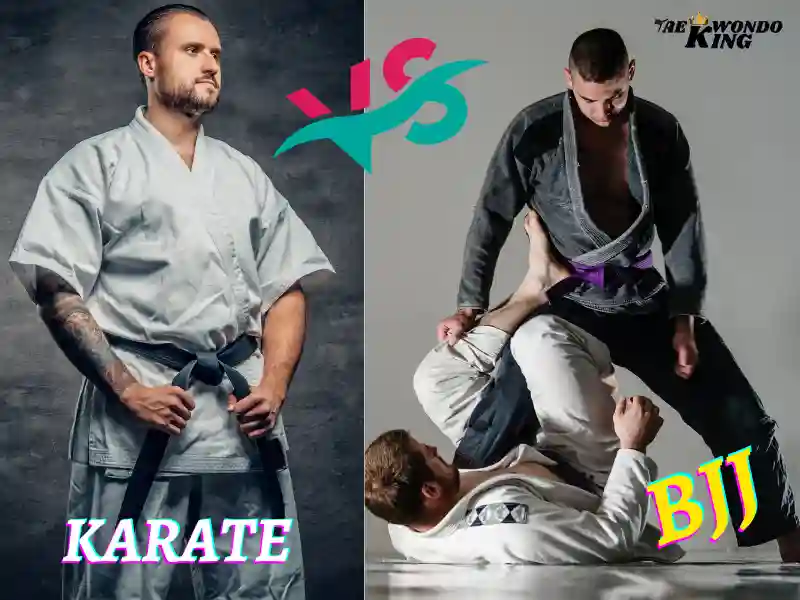
Martial arts have evolved over centuries, offering a diverse range of techniques and philosophies that cater to different preferences and combat styles. Two prominent disciplines, Brazilian Jiu-Jitsu (BJJ) and Karate, have gained widespread popularity in the martial arts community. As practitioners and enthusiasts seek to explore the effectiveness of each art in various combat scenarios, the question arises: Does Brazilian Jiu-Jitsu truly triumph over Karate in a confrontational setting? This article delves into the strengths, strategies, and applications of both BJJ and Karate to shed light on this intriguing comparison. Today we are talking about How Does BJJ Beat Karate?
BJJ beat karate. Karate is a good martial art, but BJJ is much more effective than karate. Karate has different moves, but they are basic and slow. BJJ is based on fighting, and it uses punches, kicks, locks, throws, and chokes. A lot of people use BJJ to get fit, but there are many benefits to it. For one, BJJ helps with self-defense.
If you ever get into a fight, you can use BJJ techniques to defend yourself. If you learn BJJ, you can also teach others how to defend themselves. BJJ gives you the chance to learn how to protect yourself and others. Learning this form of martial arts will help you to become a better person and to grow.
Background History of BJJ and Karate
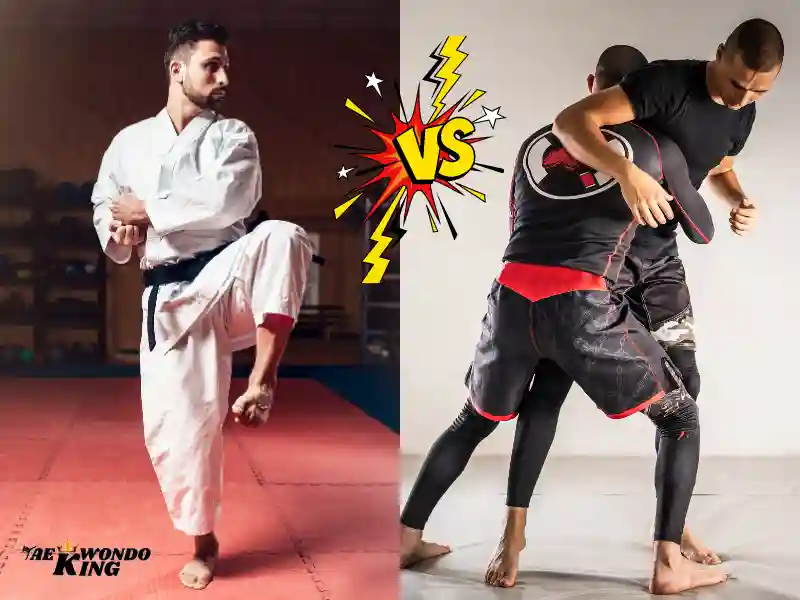
Brazilian Jiu-Jitsu, a ground-based martial art and combat sport, martial art, originated from the techniques of Japanese Jiu-Jitsu and Judo. Developed by the Gracie family in Brazil, BJJ emphasizes leverage, joint locks, and chokeholds to control and submit opponents, making it particularly effective in close-quarters combat and self-defense situations. On the other hand, Karate is a striking art that hails from Okinawa, Japan and emphasizes powerful punches, kicks, knee strikes, and elbow strikes. Karate practitioners shone their techniques through katas, predefined sequences of movements, and sparring, striving to deliver precise and powerful blows to incapacitate opponents swiftly.
Karate is one of the most popular, striking martial art in the world. Most people like to learn karate to defend themselves against people who would harm them. They practice karate to learn how to block, strike, punch, kick, and disarm an attacker. Karate training focuses on self-defense skills and improves your overall fitness level. Karate is also a great sport because it gives you a lot of physical benefits. Some people believe that Karate makes you mentally strong. This is true. Karate training is a way of living. It teaches you to be a leader, a role model, and a team player.
How Does BJJ Beat Karate? Both martial arts are a great way to stay fit and be safe. If you practice those sports, you are less likely to get into fights and you’re also going to have a lot of fun doing it. Both martial arts teach you to think about what you are doing and how you can defend yourself. You learn to stay calm in tense situations. Also, you’ll find that you are less likely to get into fights because you are learning to avoid conflict.
Analyzing the Attributes: BJJ vs. Karate
Techniques and Range:
- BJJ excels in ground grappling, aiming to control and submit opponents through joint locks and chokes. It emphasizes positional dominance, making it highly effective in close-quarters combat scenarios.
- Karate emphasizes striking techniques from a distance, focusing on powerful and accurate strikes to vulnerable targets. It is an advantage for maintaining distance and engaging opponents in stand-up situations.
Strategy and Tactics:
- BJJ involves strategic positioning and leveraging an opponent’s force against them. Practitioners use transitions and submissions to neutralize attackers, emphasizing patience and technique.
- Karate relies on speed, timing, and precise execution of strikes. Practitioners seek to exploit openings in an opponent’s defense and deliver decisive blows, often aiming for quick finishes.
Self-Defense Applications:
- BJJ offers practical self-defense techniques for neutralizing attackers, regardless of size or strength. Its focus on ground control allows practitioners to restrain and incapacitate opponents without relying solely on striking.
- Karate equips individuals with powerful strikes and techniques to fend off aggressors. Its emphasis on maintaining distance and executing rapid strikes is ideal for preemptive actions and quick escapes.
Fitness and Conditioning:
- BJJ provides an intense cardiovascular workout through sparring and positional drills. The close contact nature of training builds endurance, flexibility, and core strength.
- Karate training involves repetitive striking and kata practice, enhancing muscular endurance and overall body coordination. Dynamic movements improve agility and balance.
BJJ and Karate Complementary Aspects
While the debate centers on whether BJJ is superior to Karate or vice versa, it’s essential to recognize that both disciplines possess unique attributes that can be highly complementary. Both fighters can beat each other in a street fight. Integration of BJJ and Karate techniques can create a well-rounded martial artist with a broader skill set and adaptability in various combat scenarios.
Effective Transitions:
- Combining BJJ’s ground control with Karate’s striking can lead to seamless transitions between stand-up and ground grappling. A martial artist proficient in both arts can capitalize on openings during striking exchanges and smoothly shift to ground dominance when opportunities arise. Both have many styles and forms.
Versatile Range Management:
- Understanding the strengths of both disciplines enables practitioners to effectively manage the combat range. A BJJ fighter well-versed and Karate can adapt to situations that demand either close-quarters grappling or maintaining distance for strikes.
Holistic Self-Defense:
- Integrating BJJ and Karate techniques empowers individuals with a comprehensive self-defense toolkit. When confronted with a threat, a martial artist can choose the most suitable techniques based on the circumstances, whether it involves restraining an opponent or delivering powerful strikes.
BJJ Beat Karate? Who is better?
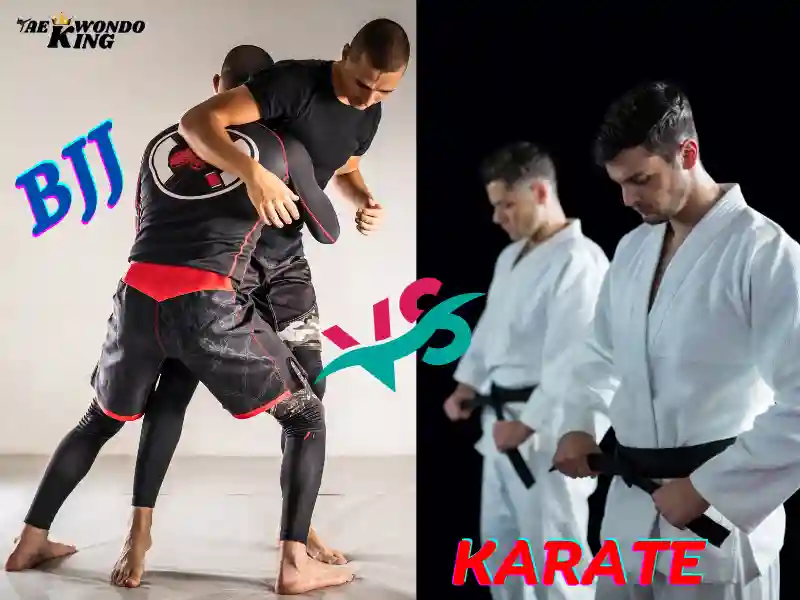
Whether Brazilian Jiu-Jitsu beats Karate is not one of supremacy but of context and application. How Does BJJ Beat Karate? BJJ and Karate offer distinct advantages that can be harnessed to great effect in combat scenarios. While BJJ excels in ground control and submissions, Karate’s focus on striking and maintaining distance is equally valuable. The ideal approach lies in recognizing the strengths of each discipline and integrating them strategically.
The true victory lies not in pitting one art against the other, but in acknowledging their potential synergy. A martial artist who incorporates elements of both BJJ and Karate gains a well-rounded skill set that can adapt to a diverse range of confrontational situations. As the martial arts community continues to evolve, embracing the diverse attributes of different disciplines will undoubtedly lead to a more effective and versatile generation of fighters. So, rather than asking whether BJJ beats Karate, perhaps the better question is: How can we harness the strengths of both disciplines to enhance our martial arts journey?
What advantages does BJJ have over Karate?
Brazilian Jiu-Jitsu (BJJ) has several advantages over Karate.
1. Practicality: BJJ focuses on ground fighting and submission techniques, which are more applicable in real-life self-defense situations compared to the striking and stand-up techniques of Karate.
2. Size and strength: BJJ emphasizes leverage and technique, allowing smaller individuals to effectively defend themselves against larger opponents. In Karate, physical strength and power play a significant role.
3. Self-defense: BJJ’s emphasis on grappling and submissions makes it highly effective for self-defense, especially in close-quarter situations where striking techniques may be less effective.
4. Sport effectiveness: BJJ has gained popularity in mixed martial arts (MMA) competitions and is widely regarded as one of the most effective martial arts for ground fighting. Karate has become less prevalent in modern MMA.
5. Physical fitness: BJJ provides a full-body workout, improving strength, flexibility, and cardiovascular endurance. While Karate also provides physical fitness benefits, BJJ’s focus on ground fighting adds an extra dimension to the workout.
It is important to note that both martial arts have their unique benefits and it ultimately depends on individual preferences, goals, and training objectives.
Does BJJ beat Karate in terms of self-defense?
The effectiveness of Brazilian Jiu-Jitsu (BJJ) versus Karate in terms of self-defense can vary depending on the specific situation and the skill level of the individuals involved. BJJ focuses on ground fighting and submissions, while Karate emphasizes striking techniques.
BJJ can be highly effective in self-defense situations, as it teaches techniques to immobilize and control opponents, even if they are larger or stronger. It also places a strong emphasis on leverage and technique, allowing smaller individuals to defend themselves against larger attackers.
Karate emphasizes powerful strikes and kicks, as well as blocks and evasive movements. It can be effective for self-defense in situations where quick strikes and disabling an attacker are necessary.
Ultimately, the effectiveness of either martial art depends on the practitioner’s training, experience, and the specific circumstances of the self-defense situation. It is recommended to train in a martial art that suits your personal preferences and goals and to also consider supplementing it with other self-defense techniques and strategies.
Is BJJ better than Karate?
The answer to this question is subjective and depends on individual preferences and goals. Brazilian Jiu-Jitsu (BJJ) and Karate are two different martial arts with their unique techniques and philosophies. BJJ focuses on grappling and ground fighting, while Karate emphasizes striking techniques. Both martial arts have their benefits and can be effective in different situations. It is best to try out both and see which one suits you better and aligns with your goals.
So, BJJ or Karate? which one is more effective?
Let me tell you. You need to be physically fit to learn BJJ. It is a very strenuous art. That’s why it is great for both young and old. There are no age limitations to learning it. Everyone is welcome to it. To get better at BJJ, you need to train for hours on end. It would help if you were dedicated to it. You have to be serious about it. Karate is also very physical, but it is not as rigorous as BJJ. If you want to learn it, you should practice it with a partner. But, if you are thinking of training for competition, I recommend that you go to a BJJ school first. You will do it if you start now. This is your only chance.
FAQs
Does BJJ beat Karate in a fight?
The outcome of a fight between Brazilian Jiu-Jitsu (BJJ) and Karate would depend on various factors such as the skill level and experience of the individuals involved, their physical attributes, and the specific circumstances of the fight. Both BJJ and Karate are martial arts with different focuses and techniques. BJJ emphasizes ground fighting, submissions, and grappling, while Karate focuses on strikes, kicks, and self-defense techniques. Ultimately, the effectiveness of either martial art in a fight would depend on how well the practitioner can utilize their skills and adapt to the situation.
Can someone with BJJ skills defeat a Karate practitioner?
The outcome of a fight between a Brazilian Jiu-Jitsu (BJJ) practitioner and a Karate practitioner would depend on various factors such as the skill level, experience, physical attributes, and strategy of each individual. BJJ is a martial art that focuses on grappling and ground fighting, while Karate emphasizes striking techniques.
BJJ practitioners are generally well-trained in submissions and grappling, which can be advantageous against a Karate practitioner who may have less experience in those areas. However, Karate practitioners may have superior striking skills and techniques that could potentially overcome a BJJ practitioner’s grappling abilities. Ultimately, the result would depend on the specific circumstances of the fight and the abilities of the individuals involved.
Does BJJ beat Karate in terms of mental discipline?
The comparison between Brazilian Jiu-Jitsu (BJJ) and Karate in terms of mental discipline is subjective and can vary from person to person. Both martial arts require mental discipline and focus, but the extent to which they develop mental discipline may differ based on individual experiences, training methods, and personal dedication. It ultimately depends on the individual’s commitment and mindset towards their martial arts practice.
Does BJJ beat Karate in terms of competition success?
There is no definitive answer to this question as it ultimately depends on various factors such as the skill level and training of the individuals involved, as well as the specific rules and format of the competition. Both Brazilian Jiu-Jitsu (BJJ) and Karate have their strengths and techniques that can be effective in different scenarios. It is important to note that both martial arts have had successful competitors in their respective competitions.
Who has the advantage: BJJ or Karate?
In most real-world confrontations, BJJ holds a significant advantage over Karate. Here’s why:
- Grappling vs. Striking: BJJ excels at ground fighting and grappling, taking the fight to a place where Karate’s powerful kicks and punches are less effective.
- Closing Distance: BJJ techniques focus on clinching and takedowns, effectively neutralizing a Karate practitioner’s kicking and punching range.
- Limited Ground Defense: Traditional Karate has less emphasis on ground fighting, making it harder to defend against BJJ’s grappling dominance.
Are there situations where Karate could win?
Yes, while BJJ has the upper hand in most cases, here’s where Karate might have a chance:
- Open Space and Distance: If a Karate fighter can maintain distance and land a well-timed, powerful strike before the BJJ practitioner closes in, it could be decisive.
- Surprise Element: A well-placed and unexpected punch or kick from a Karate fighter could catch a BJJ practitioner off guard and potentially win the fight.
What’s the best self-defense approach?
The best self-defense is situational awareness and avoiding conflict whenever possible. However, if physical confrontation is unavoidable, a well-rounded approach that incorporates striking and grappling skills is ideal.
Should I train in both BJJ and Karate?
Cross-training in different martial arts can be very beneficial. Learning BJJ’s grappling skills can complement Karate’s striking power, offering a more versatile self-defense skillset.
What matters most in a fight?
While martial arts skills are important, several factors can influence a fight’s outcome. These include:
- Individual skill level and experience of the fighters
- Size and physical attributes
- Mental preparedness and fight IQ
- Element of surprise

Founder, Owner, and CEO of TaekwondoKing.
He is one of the top 100 martial artists in the World and among the top 20 referees in Bangladesh.
Ehatasamul Alom is an esteemed Kukkiwon Certified Taekwondo 3rd Dan Black Belt with over 15 years of experience in this dynamic martial art. Born in Rajshahi, Bangladesh, Ehatasamul’s journey with Taekwondo began at the tender age of seven. His passion led him to compete at national and international levels, where he has bagged numerous awards and honors. He is also a member of the Taekwondo National Referee Panel.
With a Bachelor’s degree in Sports Science from the prestigious Rajshahi University, Ehatasamul has a deep understanding of the technical and scientific aspects of martial arts and some other martial arts.
In 2022, Ehatasamul created the “TaekwondoKing.com” to share his knowledge, Free Resources, Values, and Real experiences. His articles focus on Taekwondo training techniques, competition strategies, Sport Products Reviews, and the art’s rich history and philosophy. He also writes about the importance of mental fortitude and discipline, key aspects of his teaching philosophy. He has already launched many sports, Taekwondo, and health-related Free online tools. His goal is to inspire both beginners and seasoned practitioners worldwide through insightful and engaging content.
If you need any help, contact Ehatasamul Alom at any time.

